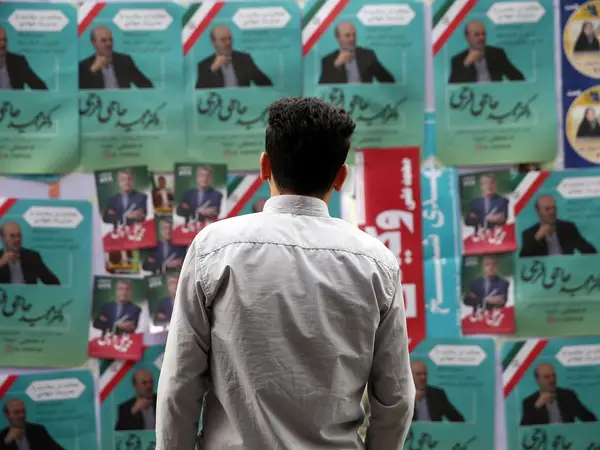Iran’s hardliners retreated somewhat last week, and authorities approved the candidacy of a few Reformists for the March parliamentary elections to save face.
As partial results of the vetting of Iran's upcoming parliamentary elections emerged, the official news agency IRNA has confirmed that the Guardian Council, which has the final say in the process of vetting, approved the candidacy of a few rejected candidates. This, however, is far from giving all regime insiders a chance to compete in the elections. Dozens of serious contenders have remained ostracized by the hardliner followers of Supreme Leader Ali Khamenei, which is expected to lower voter turnout in March.
Conservative politician Abolghasem Raoufian has argued that that most Iranians have still not come to terms with the idea of an all-conservative government and side-lining all other political groups. Raoufian said: "The turnout in Tehran was 18 percent during the previous Majles election, however, as a result of the performance of the current parliament and the government, the turnout in the upcoming election is likely to drop to 8 percent."
The government is under pressure by public opinion to open up the political atmosphere. It is currently suffering from a legitimacy crisis as the middle class, women and young voters have stopped communicating with the government particularly after the 2022 nationwide protest and the ensuing harsh crackdown.
Raofian went on to say that the Guardian Council's strategic mistakes of barring hundreds of candidates during the previous two rounds of elections in Iran “has caused irreparable damage to the Council's credibility and the reputation of some of Iran's key political figures."
The most well-known reformist figures whose qualifications have been endorsed are former vice president Mohammad Bagher Nobakht who is a key aide to former President Hassan Rouhani and the leader of his Moderation and Development Party, and Massoud Pezeshkian a lawmaker from Tabriz. Pezeshkian said on Monday that without a remark by Khamenei in his favor, his candidacy would have never been reconsidered.
Several Iranian government-owned news agencies reported the endorsement of Nobakht's qualifications. Nobakht was the head of the Planning and Budget Organization under President Rouhani.
IRNA has also confirmed the official candidacy of Gholamreza Tajgardoon, a former MP whose credentials were revoked after he was implicated in a major financial corruption case. This is yet another indication that there is no will in the Iranian government to tackle corruption.
Meanwhile, the official news agency also confirmed that the Guardian Council has endorsed the qualification of former MP Ali Motahari, a conservative critic of some the Raisi Administration's policies. Motahari's candidacy was rejected by the Guardian Council during the 2021 Presidential elections.
Most of the results of the vetting are expected to be announced during the coming days. The voting for the parliamentary election is slated for March 1. Some of Iran's Reformists have called for postponing the election to another date, but that is unlikely to be approved by the government.
Still, the presence of a few reformist and moderate candidates cannot guarantee a high turnout in the elections as those who have got through the Guardian Council's net are not among the top tier of reformist figures in Iran. Some reformists including Mohammad Ali Abtahi have pointed out that without free and fair elections and solving the country's economic problems, most of eligible voters are unlikely to show up at the polls.
Many other Iranian politicians have highlighted the nearly 80 percent turnout in the latest elections in Turkey and reminded the Iranian government that it is a shame that turnouts in the latest elections in Iran were between 20 to 40 percent.
Raoufian said that the government's poor economic performance is one of the major causes of low turnout in Iran's elections in recent years. He added that the parliament's silence in the face of the recent $3.5 billion-dollar Debsh Tea financial corruption has badly damaged the reputation of the Majles and its lawmakers.
